#highland clearance
Text

Book I’m working on.
#graphic design#book design#book cover#writersofinstagram#author#highland clearance#historical fiction#graphics#visual communication
4 notes
·
View notes
Text
tbh never not going to piss me off that wales northern ireland and scotland all vote in uk general elections as if our populations combined are anywhere near even just the london area. its so stupid. our votes dont count if england decides to vote another way (proven by in the past england getting the tories in despite scotland wales and northern ireland voting non-tory by a big majority).. dont know how things will change now but it feels like being attached to a big nasty leech. like how are these guys deciding + overruling laws for us you dont even live here
#kiddo say#hate the uk so much its unreal#last bits rhetorical we know why#this + thinking of posh english cunts ruining the highlands for sport hunting + thinking of the highland clearances. rage
76 notes
·
View notes
Text
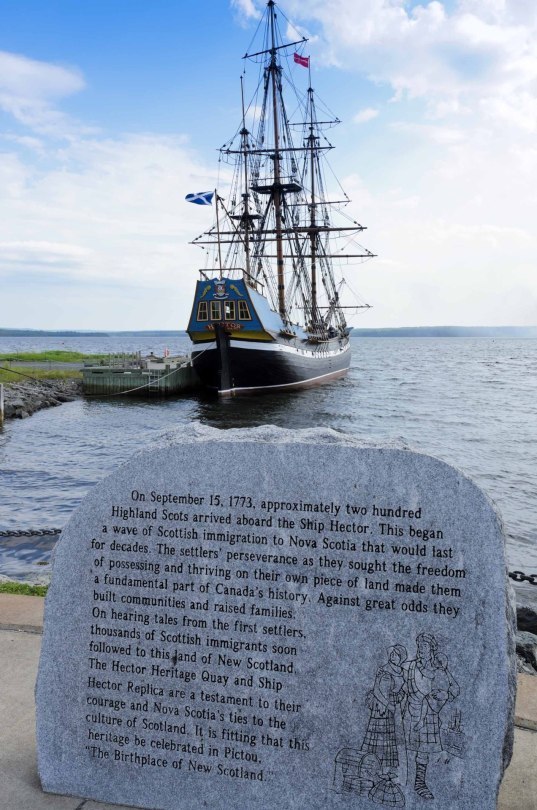
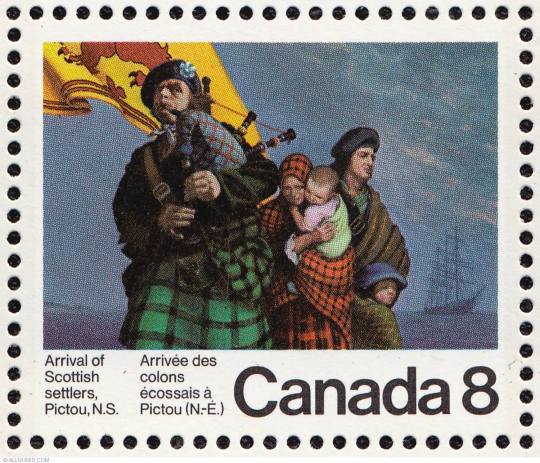
On 15th September 1773 the emigrant ship “Hector” arrives in Pictou Harbour on Nova Scotia carrying 189 Highlanders, most loaded two months earlier in Ullapool.
Although they were not the first Scots to arrive in North America they were the vanguard of a massive wave of Scottish immigrants to arrive in what is now Canada. In the century following the landing of the Hector more than 120 ships brought nearly 20 000 people from Scotland to the port of Pictou. By 1879 more than ninety-three percent of the region’s rural property owners had Scottish names.
Ironically, very few of the Hector people stayed on the Pictou Plantation. They had been cruelly deceived by the shipping company that brought them out to Nova Scotia. The land was not ready for settlement as promised and supplies for the coming winter were meagre. Most of them moved on to settled parts of the province leaving an intrepid handful of their countrymen to fend for themselves in an uncultivated wilderness.
The Hector was owned by two men, Pagan and Witherspoon, who bought three shares of land in Pictou, and they engaged a Mr John Ross as their agent, to accompany the vessel to Scotland, to bring out as many colonists as they could induce, by misrepresentation and falsehoods, to leave their homes.
As they were leaving, a piper came on board who had not paid his passage; the captain ordered him ashore, but the strains of the national instrument affected those on board so much that they pleaded to have him allowed to accompany them, and offered to share their own rations with him in exchange for his music during the passage. Their request was granted, scrolling through various passenger lists I have found out the Piper was more than likely a man called William McKay.
All those travelling that were aged over 8 were required to pay full fare for the passage, those between 2 and 8 were charged half fare under 2’s were free. It was bad enough that they were conned with the promise of land in Canada but conditions on board the Hector were said to be horrendous, the ship was barely sea worthy and has been described as a crumbling wreck. I can’t find any mention of how may survived the 11 week journey or how the passengers were related to one another it was a nine week journey over the Atlantic, Smallpox and dysentery took their toll on the infants and children on board. In all, eighteen died at sea, I think by that they mean 18 children, poor things. By the time the rotting hulk landed, people were picking at the planks to find worms to eat.
On arrival about all that they seen was the dense forest grew down to the water’s edge as far as the eye could see.
The unfamiliar customs and appearance of the natives inhabiting the area so terrified the settlers that they remained on board for two days despite their desire to walk again on dry land. Finally, on September 17, 1773, dressed in full Scottish regalia, with all pageantry of their kilts and the pipes, they went ashore
The “Hector” pioneers faced extreme difficulties during their first year in the New World, but with the development of a lively timber trade with Scotland and the finalising of land grants, conditions improved and the development of what is now Pictou County was under way. The land was rich, the rivers and oceans plentifully stocked with fish, and the timber of high quality.
Pics are of a stamp issued in 1973 to mark 200 years since the crossing and the Hector replica at Pictou. The Hector Heritage Quay is one of Nova Scotia's major cultural tourist attractions. The Hector is a full-sized replica of the original ship. A Highland Homecoming, a celebration of the strong Scottish spirit, takes place on-site every September. and kicking off today.
You can find all the details on their FB page here https://www.facebook.com/shiphector/
27 notes
·
View notes
Text








BRIDGERTON (2020 - ) | 3x08 "Into the Light" 🍨🪻🐝
#bridgerton#bridgerton spoilers#francesca bridgerton#john stirling#violet bridgerton#francesca x john#my gifs#shout out to ruth gemmel's face acting#also whoever did the lighting#me giffing a show that's actually well lit? unheard of#as someone who endured months of shocked and bewildered conversations over moving back to the highlands for the quiet this hit too hard#in the nice no racism AU there's no highland clearances right? right?!
41 notes
·
View notes
Text
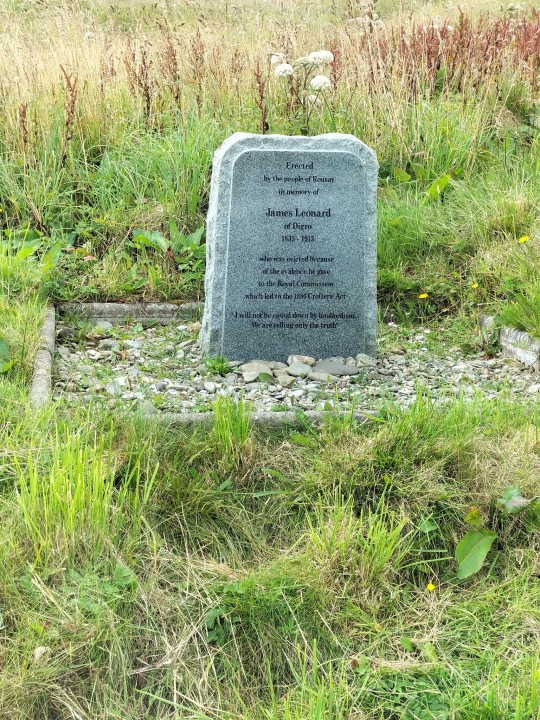
This is a memorial from Roussay on Orkney to James Leonard, an early tennant organiser. He was ultimately evicted from his land by the infamous landlord Frederick William Traill-Burroughs. Following his eviction, three of his children died of diphtheria. But his work in organising the tennants and giving evidence to the Scottish government ultimately got more protections for the crofters and may have helped prevent other clearances on Orkney.
Despite this he failed to win protection in time for the crofters of Roussay, and the island's population has gone from over 1000 at the time of the clearances to less than 100 today.
James Leonard's words still ring true today: "I am prepared to speak the truth and will not be cowed by landlordism" and "We are under the despotism and terror of the landlord and we want that removed ; even though I should fail in this battle, I will fight it out."
Today, James Leonard's farm stands derelict, and the land he rented unfarmed. Meanwhile, Burrough's grand house was gutted by a fire in the 1980s and also currently stands empty.
#uk politics#uk history#tennants#organising#highland clearances#Orkney#Scotland#social history#workers history
95 notes
·
View notes
Text
scottish people 'try not to sing the "tae think again" line at twice the volume of the rest of the song' challenge
#i typed it at twice the volume of the rest of the post to give some approximation of the effect for those of you in distant lands#scottish stuff#THERE IS NO SALTIRE EMOJI ON THIS OH MY GOD HOW DARE THEY THIS IS WORSE THAN THE HIGHLAND CLEARANCES >:(
8 notes
·
View notes
Text
If u don’t want to agree to it being a colony then at least accept that they, along with the Irish and the Welsh were oppressed. If you don’t want to accept that then I don’t really know what to tell you becuase to me what im about to list right now seems an obvious example of oppression; trying to wipe out and I quote “ethnically cleanse” cultures, beating children for speaking Gaelic or Welsh right up until the late 20th century, after the battle of Culloden tartan and Gaelic was banned and if caught speaking Gaelic or wearing tartan, you were exiled, flogged or even executed, if you happened to have any ties with the Jacobites then you were literally rounded up and executed. Another example and a much more modern one is an account from my great grandma saying when she was at school you could be beat for speaking Gaelic and when my Nan was younger she was literally taught to “speak English” or more “proper”, meaning getting rid of the accent. Another example are the deep rooted stereotypes that still exist today about Scottish people, that all of them are “violent”, “angry”, “loud”, “drunk”, “savages”, “barbarians”, “not feminine” I could go on.. but these type of things are so common and they’ve been taught for so long that it is impossible not to think of the Scot’s like that and yes, some people may not be thinking of it as “not that deep” when in reality it is because they just aren’t funny and they make people look at us as if were some sort of joke, like our accents are always the butt of the joke or something. My mum has experienced things as simple as a dirty look whenever she gets a bit loud of says something in a strong accent and even on one occasion, an officer in the army telling my dad to “control his wife” after she refused to sing God save the King, as if she were “out of control” or something. All of these things are some sort of oppression and even though they aren’t as severe as they were before, they are still a thing.
I could go on about this topic for hours talking about other things like when talking about being Scottish, they always end up being the butt of the joke whether that be making fun of the accent, making fun of the bagpipes, the traditional dress. I live in England and I have a lot of friends who tend to do these things subconsciously and I wouldn’t hold it against them but I think it does need to be spoken about more and spoken about where it comes from and why it could be quite offensive. I’m so sorry to ramble on but a quick thing to point out is the fact that just becuase I want to spread the history of oppression of the Scot’s, it does not mean that I deny their involvement in the British colonialism of other countries and the involvement in the slave trade, i am aware it happened and are embarrassed and ashamed of the Scottish people who did that and I do consider them to be a “traitor” to Scotland but I just want to make my country’s history known and how they did suffer without people comparing or disregarding as something not that important or not as bad, yes some Scot’s did awful things and were involved willingly with British colonialism etc but it should not shrug off the suffering they went through as a country themselves.
I am sorry I couldn’t speak more for the Welsh or Irish but I didn’t want to then speak about their history and get it wrong. 🫶
#Celtic union#scotland forever#scottish independence#scotland#scottish#british empire#battle of culloden#jacobites#highland clearances#Celtic oppression#united ireland#welsh independence#union act of 1707#bonnie prince charlie#history#scottish history#amrev#american history
19 notes
·
View notes
Text
jirving enjoyers u have to read clear by carys davies im so so serious
#gene.txt#misguided gay scottish presbyterian minister called john goes on an imperialist* mission in the mid-1840s#and only realises he's wrong when it's too late. like. hello#(*this is abt the highland clearances which had multiple motivations but for the sake of these tags lets go w imperialism)#jirving aside its a v solid little novel i literally read it in two hours flat and i had an absolute ball on that bitch
7 notes
·
View notes
Text
Reading Bed Me, Duke by Felicity Niven and I've never read a heroine more down and ready in the first chapter (I have a newfound appreciation for authors setting the first chapter in the "thick" of action so to speak, and then the next is like "three weeks earlier....").

#a humanitarian#no for real she's gonna stop the highland clearances by seducing a duke#felicity niven#historical romance
15 notes
·
View notes
Text
Seeds of barley,
scattered on barren winds,
no longer bound to clan and kin.
Lost youth and wasted age,
stripped and broken like rusted tin.
Mournful stone and empty doors,
the howling wind and Atlantic roar,
cannot drown the quiet sounds -
a resurgence from the richer ground.
The far side of the world no longer alone;
The Children of the Barley are returning home.
This is an ode to the lives lost in the highland clearances and the resurgence of Scottish culture after centuries of London-led Anglicanization. My short story 'The Sellar Winds' is also about this topic, but you can find more comprehensive information here.
20 notes
·
View notes
Text
As the Subaru approaches closer and closer to 200k miles and it is getting more and more rattly. I'm considering my next vehicle.
So help me god it might be a mini van. I might be THAT dog person.
#toyota sienna vs toyota highlander#cause to be realistic i may need to fit in mutiple dog crates people and gear into a vehicle#considering for when i get a puppy in 2025 (its going to happen dammit)#both sienna and highlander have hybrid AWD options#they both get the same gas mileage and their price is comparable#highlander has ground clearance and the sienna just has more room in general#but seriously trying to imagine myself in a mini van#😑#partner's next vehicle most likely will be an off roading capable vehicle so we will jave that covered#but still
8 notes
·
View notes
Text
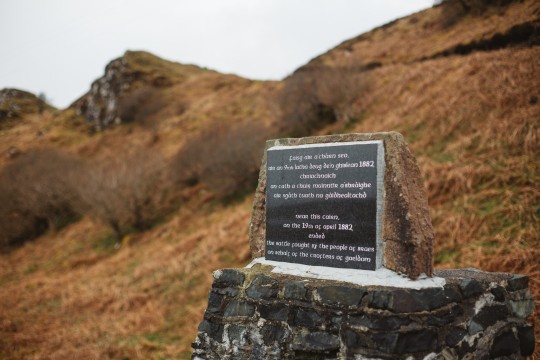
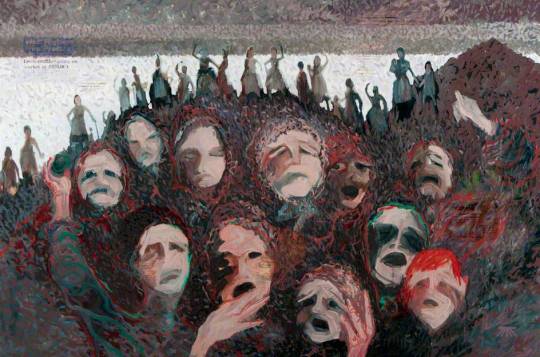
April 11th 1882 we saw an incident during the Highland Clearances happened on Skye that has become known as The Battle of the Braes.
Lord MacDonald sought help from the law to evict the stubborn crofters, and in April 1882 the locals woke to the sight of a sheriff officer. Charged with issuing eviction notices, the sheriff was met with an angry reaction and forced to burn the notices.
Following this initial confrontation, reinforcements were requested from Glasgow. 50 police officers travelled to Skye with the intention of evicting the crofters, who once again stood their ground.
Arriving at Braes, the police were faced down by a mob of around 100 men, woman and children from the local community, many of whom were armed with an array of primitive weapons. Wielding clubs, sticks and stones, the Battle of the Braes erupted and the crofters clashed with the police.
Several people were injured in the Battle of the Braes while others were arrested and subsequently fined for their involvement. Despite the outcome, the crofters still stood firm in their refusals and military intervention was considered.
The Battle of the Braes sparked similar unrest elsewhere in Skye, with locals in Glendale incensed at the treatment of other islanders.
Notably, the incident prompted a public outcry. Sympathetic press coverage of the dispute galvanised widespread support for the crofters. Sensing the mood, the government refused to authorise military intervention and a commission was launched to examine the plight of the crofters.
The Napier Commission, chaired by Lord Francis Napier, ultimately led to the introduction of new legislation aimed at improving security for crofters via the Crofters Act of 1886.
The Act was modelled largely on the Irish Land Acts of 1870 and 1881 and granted crofters security of tenure.
Today, the Battle of the Braes is a celebrated event in both the history of Skye and broader Scottish history. A monument commemorates the efforts of the crofters while a popular folk song also celebrates the event.
24 notes
·
View notes
Text
i was not expecting the modern history of scotland in ep 4 of andor
12 notes
·
View notes
Text
lovinggg this show…… it’s barely even star wars, thus far it’s far more a thoughtful exploration of imperialism and fascism than sci fi. it’s technically all fiction but sometimes barely, you know? i don’t think the veil between our world and the star wars-verse has ever been portrayed as so thin.
#not that i had my doubts but. you know#the new disney plus star wars show. maybe a few#filming it in the highlands and talking about the clearances !!! they really did that
8 notes
·
View notes
Text

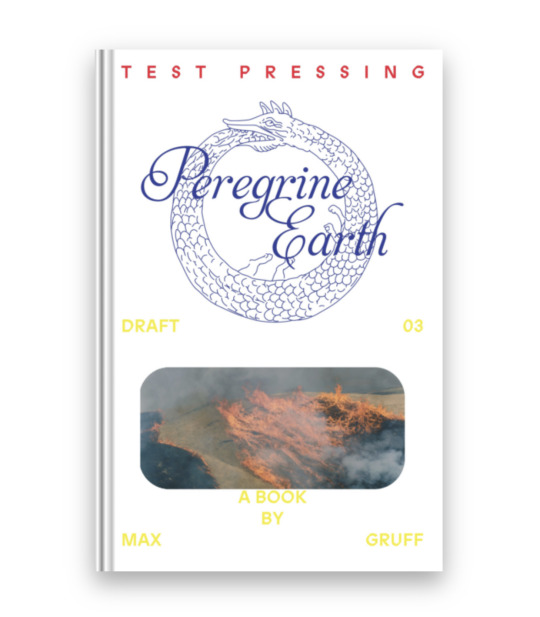
Test pressing of draft 3 on the way now.
#fiction#historical fiction#highland clearances#hebrides#literary#book extract#poetic prose#prose writing
3 notes
·
View notes
Text
anyway the thing about andor is that it is very clearly drawing directly from real life colonial history
#the people on ferris clattering metal like the women of the bogside#the highland clearances#etc etc
6 notes
·
View notes